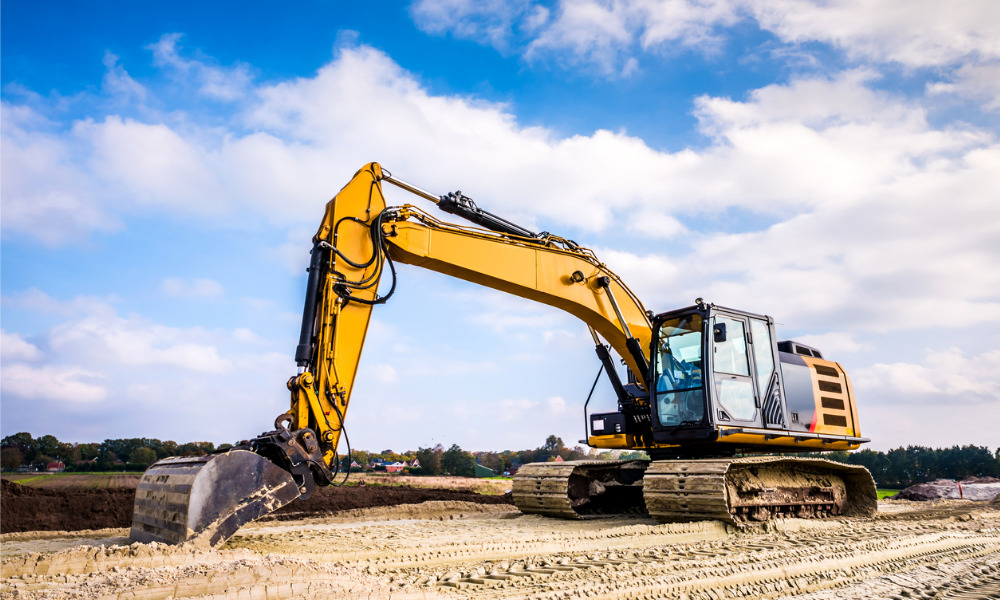Can DEI promote wellbeing in a safety-sensitive workplace?

Establishing and implementing a diversity policy is tough enough but when you are dealing with a traditionally male-dominated industry such as construction equipment rentals, the task can become more difficult.
For one major player in the industry, the secret to success is constant re-evaluation, says an HR leader.
“We can talk about a policy but it’s really about living and breathing it: you can have a policy and if it’s not being lived, it’s kind of meaningless,” says Jennifer Leaman, director of talent, learning and development at Finning Canada in Coquitlam, B.C.
“It’s: how do you embed that within your culture and make it part of everything that you’re doing?”
‘For some people, this is really uncomfortable’
Being sympathetic with employees working in a place that has been perceived to be resistant to progressive changes is an important consideration for HR in managing diversity and inclusion, says Leaman.

Jennifer Leaman
“When we’re starting to talk about different types of gender in the workplace, for some people, this is really uncomfortable and so you’ve got to be open to understanding that people are in different places in their journey, and [it’s about] helping people move along, providing awareness and openness to continue to move and advance the agenda there.”
Read more: EllisDon partners with women's groups to tackle sexual harassment
In crafting a DEI policy, it’s important to be aware of the goals and always remember to be authentic in the roll-out, she says.
“How are you going to ensure that it’s aligned with other messages about your culture, how it’s still aspirational but at the same time, realistic? The last thing you want to do is create a policy so aspirational your organization is just not at that place, [and] it causes a disconnect between people who are currently living and breathing that,” says Leaman.
Safety first
For an industry where being safe is a top consideration, having a truly welcoming culture is key to success.
“We have seen that where people who are feeling like they don’t belong, they’re questioning things. They’re not bringing their full selves so that can lead into physical safety because they’re not paying attention to the job,” she says.
In addition to physical safety, it’s important not to forget about psychological safety.
“If somebody’s not feeling that they can be their true selves, they can’t express perhaps what their gender is, they’re going to be questioning that the whole time that they’re at work, and if they don’t feel like they’re belonging, they’re not necessarily paying attention to the task on hand,” says Leaman.
Read more: Women in construction fight discrimination on TikTok
Besides this feeling of not being welcomed, it can also be dangerous for other employees, which illustrates just how important a welcoming culture can be.
“If somebody is not included or not feeling included in the team, and that team is not including that person, that team may be less likely to say something when they see a potential safety issue, so they’re not speaking up,” she says.
And a DEI policy can play a part – both bad and good – when it comes to attraction and retention efforts.
“Because if you have such a policy and you’re out there talking about it, but you’re not living it, then you might be able to attract some candidates but once they come, they’re not going to stay; and then they’re going to be talking about your company, you are going to be getting that bad press, versus if you are really, truly living and breathing it internally,” says Leaman.
Continuous education
Diversity education can be daily and ongoing, she says.
“When I went to HR school many years ago, this wasn’t part of the conversation so how do you continue to evolve and grow and be more comfortable being uncomfortable and learning? It’s about having those coaching conversations with different leaders: how are you going to be dealing with somebody who’s going through a transition at work? How do you deal with it when people aren’t comfortable talking about pronouns?”
For HR, sometimes it’s the little things that can help to advance the message, says Leaman.
“Another thing that employers could be doing is a small thing: so when you introduce yourself, if you’re going to an interview, use your pronouns: ‘Hi, I’m Jennifer, my pronouns are she or her.’ That is a signal that ‘We’re more inclusive, we’re able to talk; we have these conversations.’”




